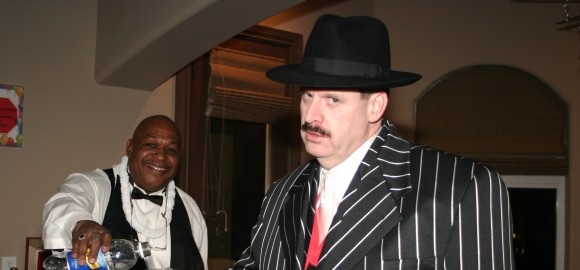Or any other form of social media!
My name is Mark Wayman, and for the last eleven years I have owned an Executive Recruiting firm focused on gaming and high tech. Compensation starts at $100,000; last year I placed eight executives north of a million dollars.
This article is about social media, and how it can sabotage your career search. Most Executive Recruiters use the process outlined below, so here are several issues to be aware of with Facebook, LinkedIn, the Internet and Email.
LinkedIn – When a candidate sends a Recruiter a resume, whether that is a Recruiter at the hiring company, or a third party Executive Recruiter, the first stop is usually LinkedIn. Specifically, does the LinkedIn profile match the resume? Companies, titles, tenures. A surprising number of people are not honest, and any discrepancy between the resume and LinkedIn is a red flag to a Recruiter. Make sure your LinkedIn profile is accurate and your picture is professional. Recently dealt with an executive who’s LinkedIn profile photo was him drinking with his buddies at a nightclub. I’m not here to judge, only to make you aware that unprofessional photos will get your resume sent to the round file. For those that say, “I can do whatever I want – this is America!”, we have a name for that – “an obsessive need to be me.” You can do whatever you want, but you will be passed over for jobs.
Facebook, Part 1 – This can be a huge deal breaker! Recruiters check out the profile photo to get more insight into their character. Plenty of people are technically competent, however Recruiters are paid to get the very best. And the best don’t post a picture of them getting tanked at a nightclub. Or with a girl on their lap at a Strip Club. I kid you not – these are real life examples. I know a CFO that did this, and he has been headed down the slippery slope ever since. He used to be a world class company; now he is at a small, mediocre company. You have heard it before – never post anything on Facebook you would not want on the front page of the newspaper. Set your privacy settings to “friends only.” Same goes for Instagram, Pinterest and any other social media platform. Use common sense.
Facebook, Part 2 – There is another “gotcha” with Facebook; controversial issues. If you get wrapped up in debates over politics, religion, or other high profile issues, you better have your privacy settings on “friends only.” Personally, I use Facebook to see what my friends are up to. Anyone that posts negative, controversial comments…gets unfriended. I just want to see pictures of the kids!
The Internet – What comes up when you Google your name? DUI? Lawsuit? Naked pictures? You are laughing, but I have seen all three multiple times. Let me tell you what companies DON’T want…bad actors. Executives with personal issues – drug/alcohol abuse, litigation happy employees, and those recently fired for an inappropriate relationship. You can use a service like Reputation.com to help you. Not endorsing them, just giving you an example. Make sure your top search results on Google paint you in a positive light.
Email – Finally, last buy not least, make sure your email address is professional. Mine is “mwayman.” Pretty straightforward, yes? I have seen everything from “HookUpDude” to “AmysBoyToy”. If want to be cute, have two email addresses, one for personal and one for business. And never, ever inquire about a job from your work email. See it all the time, and most companies these days do monitor business email.




